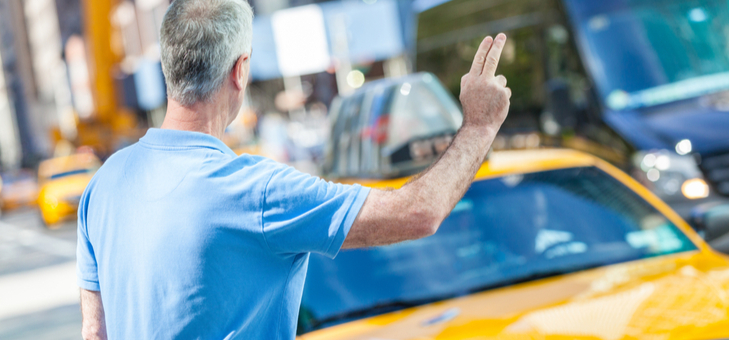There is nothing worse than that sinking feeling of knowing you’ve been scammed on your travels. Learning about popular scams and being aware of them will help you be better prepared on your holiday. Here are some common scams to look out for next time.
1. Broken taxi meters
Have you ever hopped into a taxi and been told that the meter isn’t working, and you’ll have to fork over a set fare? If so, chances are you were scammed into paying a lot more for your taxi trip. Unfortunately, this scam is a popular one worldwide. It can be easily avoided by refusing to ride unless the meter is switched on. If there are no other taxis around, negotiate a fixed price that you’re happy to pay. Pretending to walk away is an excellent tactic to get the price down to something reasonable.
2. Destination switch
Another popular scam to watch out for is taxi drivers or guides insisting that your intended destination is closed and instead whisking you away to another location – usually to a place where they receive a commission. You might also be paraded around a shop (owned by their relatives or friends) or taken to an attraction and pushed into paying an exorbitant entry fee. Play it friendly, say thank you and insist that you are happy to go to your original location. You can always check with your hotel, before venturing out for the day, about information for popular tourist sites. They will likely give you the low down, if there are in fact any closures or things you need to know before visiting.
3. Watch your water
Local entrepreneurial types have been known to collect empty water bottles from bins, fill them from a tap and sell them icy cold from a tub of ice at popular tourist sites. While not as malicious or expensive as other scams, this one could make you sick if you end up drinking the local water when you’re not supposed to. Make sure you check that the bottle of water you buy is properly sealed, otherwise don’t buy it.
4. Crying kids
If you appreciate a bit of theatre with your scam, set up in a bustling area and watch for this one. A seller, usually a cute little boy or girl, will get their goods knocked over by a careless passer-by. There will be a bit of a commotion, and the seller will be left distraught and in tears over the spoiled goods. Kindly tourists will open their wallets and, voila, the child will cheer up and head on their merry way. Wait long enough, and you’ll see them back again, setting up the biscuits they have collected from the dirt ready to replay the same scene.
5. The tourist guide
A scam that is quite easy to spot at tourist destinations around the world is a guide who will insist they take you around your destination. Whether that’s Angkor Wat in Cambodia or the pyramids in Egypt, they may even go as far as to insist that a guide is necessary. If you don’t agree upon the price upfront, you might find yourself shelling out some serious cash. Check what other visitors are doing before agreeing to anything. You may not even need a guide at all.
6. The ‘free’ henna tattoo
A common way for scalpers to earn a quick dollar in Arabic countries is women insisting on giving you a free henna tattoo – often by grabbing your arm and quickly doing a hack-job design. They will then ask for money for the tattoo and in some unfortunate cases become quite aggressive until you hand over the cash. A good way to avoid getting some unwanted temporary work is to be firm with your “No thanks”, put your hands in your pockets, and avoid making eye-contact. This scam is particularly popular in Morocco and Egypt.
7. Paying for your own stuff
One of the more malicious scams will involve people ‘selling’ you back your belongings. Drop your phone, and a sneaky scammer could pick it up and charge you a whole lot just to get it back.
Have you ever been scammed while on holiday? What happened?
Related articles:
Following the footsteps of Lawrence
Will travel solve your midlife crisis?
Multi-generational travel on the up

